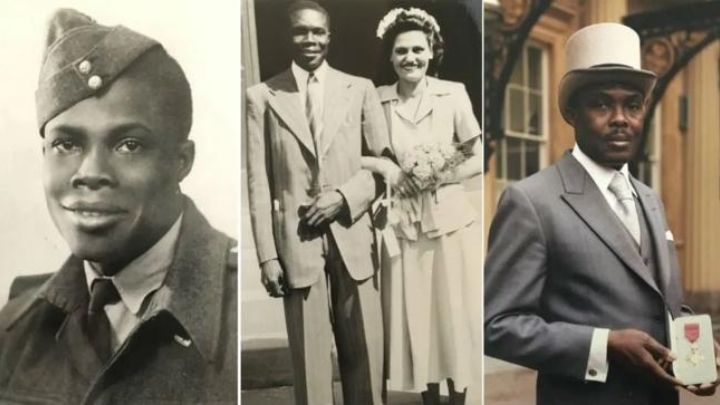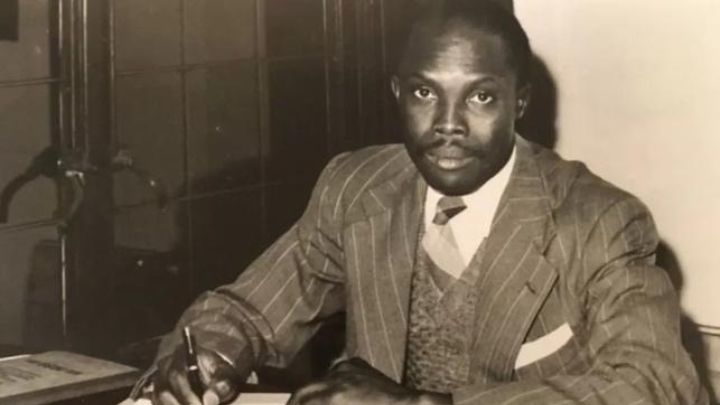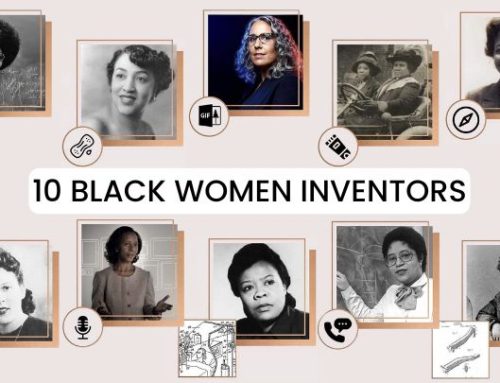First black magistrate Eric Irons honoured. Eric Irons became the first black justice of the peace in 1962.
A plaque has been unveiled to commemorate the life of Britain’s first black magistrate. Eric Irons was born in Jamaica in 1921 and then settled in Nottingham following RAF service in World War Two. Mr Irons, who died in 2007, was a campaigner for social justice, became the country’s first black justice of the peace in 1962 and was made an OBE.
A ceremony on the first day of Black History Month marked the unveiling at the National Justice Museum.
Mr Irons’s sons Adrian and Paul said he had devoted his whole life to “serving people of all colours, religion, age and the whole community”.
“In so doing, not only was he a remarkable role model to his family, but his selfless and courageous work helped to ensure we have a more equitable understanding and tolerant society that benefits us all,” they said.
Mr Irons met his wife in Nottingham after the war and they went on to have six children and 16 grandchildren.
First black magistrate Eric Irons honoured. Eric Irons became the first black justice of the peace in 1962.
A plaque has been unveiled to commemorate the life of Britain’s first black magistrate. Eric Irons was born in Jamaica in 1921 and then settled in Nottingham following RAF service in World War Two. Mr Irons, who died in 2007, was a campaigner for social justice, became the country’s first black justice of the peace in 1962 and was made an OBE.
A ceremony on the first day of Black History Month marked the unveiling at the National Justice Museum.
Mr Irons’s sons Adrian and Paul said he had devoted his whole life to “serving people of all colours, religion, age and the whole community”.
“In so doing, not only was he a remarkable role model to his family, but his selfless and courageous work helped to ensure we have a more equitable understanding and tolerant society that benefits us all,” they said.
Mr Irons met his wife in Nottingham after the war and they went on to have six children and 16 grandchildren.

Eric Irons
Mr Irons served in the RAF and then settled in Nottingham before being made an OBE in 1977
During the 1950s, while working at Chilwell Ordnance Depot, an Army base, he campaigned for better employment opportunities, health and education for black workers.
The museum said he was also instrumental in lifting a ban on black people working for a transport company and helped the city council address issues following the 1958 race riots in the St Ann’s area of Nottingham.
After making history as the first black magistrate in 1962 he was later made an OBE in 1977 and continued to oversee court cases until he retired in 1991.
The city council said the plaque would act as a permanent reminder of his legacy.
In February, he was honoured in a “Rebel City” display at a Nottingham Forest match for his fight for racial equality in the city.
Forza Garibaldi, a fan-led campaign, featured him on one of seven giant banners along with former manager Brian Clough, Robin Hood, writers DH Lawrence and Alan Sillitoe, suffragette Helen Watts and Ned Ludd, the figurehead of the Luddite movement.
Matt Oldroyd, from the group, said Mr Irons was a “hero of a man” and it was fantastic he had been recognised with the plaque.
Conclusion
An excellent journey of life, from what appears to be a humble beginning to an outstanding community ambassador. From life as a WW11 veteran to a stalwart in the community where he campaigned for social justice, devoting his whole life to helping people of colour. Being instrumental in lifting a ban on black people working for a transport company and helped the city council address issues following the 1958 race riots in the St Ann’s area of Nottingham, was obviously no mean feat. The award of OBE must have been well received for such outstanding work and achievements.
Editor’s Note
The effort and endeavour of individuals such as these must be highlighted and remembered as an example of dedication to making life better for others he could help. It is never an easy road to travel when faced with obstacles and natural opposition from all a sounder. Yet he achieved plenty of success because of his dedication to what he obviously saw as his duties.
Source: BBC News – 1 October 2019





